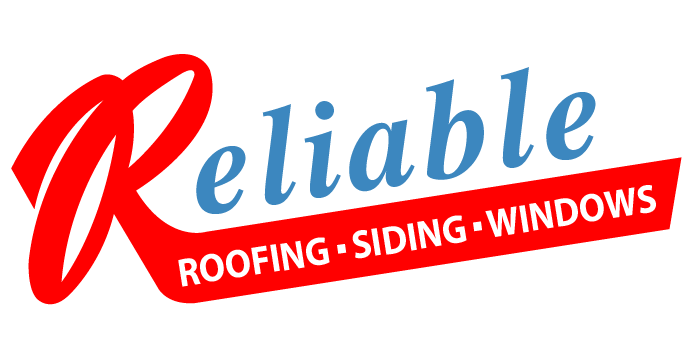Massachusetts Energy Code Explained: Base Energy Code, Stretch Energy Code & Specialized Energy Code Requirements
If you’re planning a home project in Massachusetts—like replacing windows, upgrading siding, or building an addition—you’ll need to understand Massachusetts Energy Code requirements. The state has three main energy codes: Base Energy Codes, Stretch Energy Codes, and Specialized Energy Codes. Knowing the differences helps you stay compliant, save on energy costs, and future-proof your home.
At Reliable Roofing, Siding & Windows, we guide homeowners through energy code requirements while delivering high-quality, energy-efficient solutions that preserve historic character and improve comfort.
Why Energy Codes Matter
- Energy efficiency: Proper insulation, windows, and roofing reduce heating and cooling costs.
- Comfort & durability: Well-insulated and sealed homes maintain a stable indoor climate.
- Compliance & incentives: Avoid fines, meet local building requirements, and qualify for state/federal programs.
- Community impact: Stretch and Specialized Codes support Massachusetts’ sustainability and climate goals.
Understanding Massachusetts Energy Code
Base Energy Code
The Base Codes is the default statewide standard for all towns. It sets minimum efficiency requirements for new construction, additions, and renovations.
- Compliance paths: Prescriptive (follow detailed specs for insulation, windows, doors, HVAC) or Performance-based (energy modeling using HERS rating).
- Applies to small renovations and additions in towns that haven’t adopted a higher code.
- Supports energy-efficient upgrades like replacement windows and insulation.
Stretch Energy Code
The Stretch Codes is a voluntary, performance-based code adopted by towns through a municipal vote. Most Massachusetts towns now use it to promote greater energy efficiency.
- Performance-based only (HERS, TEDI, or Passive House modeling).
- Applies to most new construction and major renovations.
- Reduces long-term energy costs, especially for all-electric homes.
- Requires energy-efficient windows, doors, roofing, and insulation.
Specialized Energy Code
The Specialized Codes is the highest performance standard and is opt-in for municipalities. It is designed for net-zero ready construction.
- Applies only to new construction.
- Requires solar readiness and EV charging wiring if fossil fuels are used.
- Large multifamily buildings must meet Passive House standards.
- Helps homeowners future-proof homes for energy efficiency and sustainability.
Comparing the Codes
| Feature | Base Code | Stretch Code | Specialized Code |
|---|---|---|---|
| Applies to | All projects | New & major renovations | New construction only |
| Compliance Method | Prescriptive or Performance | Performance only | Performance only |
| Solar Requirement | No | No | Yes, if fossil fuels used |
| EV Readiness | Optional | Optional | Required |
| Passive House Requirement | No | No | Yes, large multifamily only |
Implications for Homeowners
Energy codes influence window, siding, roofing, and insulation choices. Upgrades not only ensure compliance but also:
- Reduce energy bills
- Improve indoor comfort
- Preserve historic home features
- Increase property value
Reliable ensures your windows, doors, siding, and roofing exceed code requirements while providing maximum energy savings and comfort.
FAQ – Massachusetts Energy Codes
1. What is the difference between Base, Stretch, and Specialized Codes?
The Base Code is the minimum standard. Stretch is stricter and performance-based. Specialized is the most advanced, requiring net-zero readiness, solar, and EV wiring for new construction.
2. How do I know which code my town uses?
Check with your local building department or the Massachusetts DOER website. Green Communities often adopt Stretch or Specialized Codes.
3. Do energy codes affect renovations or additions?
Small renovations usually follow the Base Code unless in a Stretch Code town and the project meets certain size thresholds.
4. Can upgrading my windows help meet code requirements?
Yes. Energy Star-rated windows installed by Reliable often exceed Base and Stretch Code requirements, lowering energy bills.
5. Which code saves the most money on energy bills?
Stretch and Specialized Codes generally offer the most long-term savings, especially for all-electric homes.
You can also visit the Massachusetts Department Of Energy Resources and see some frequently asked questions regarding the Stretch Energy and Municipal Opt-In Specialized Building Code.
Reliable Roofing, Siding & Windows Services
- Energy-efficient windows & doors
- Siding & roofing upgrades for compliance and durability
- Additions & renovations designed for code compliance
- All-electric & sustainable upgrades: solar readiness, EV infrastructure, heat pumps
Key Takeaways
- Know your town’s energy code before starting a project.
- Stretch & Specialized Codes require performance-based compliance.
- Reliable ensures your project meets or exceeds code, improving energy efficiency, comfort, and long-term savings.
Pro Tip: Contact Reliable Roofing, Siding & Windows before planning your next project. We’ll help you navigate Massachusetts Energy Code requirements and install energy-efficient upgrades that save money and support sustainability goals.

